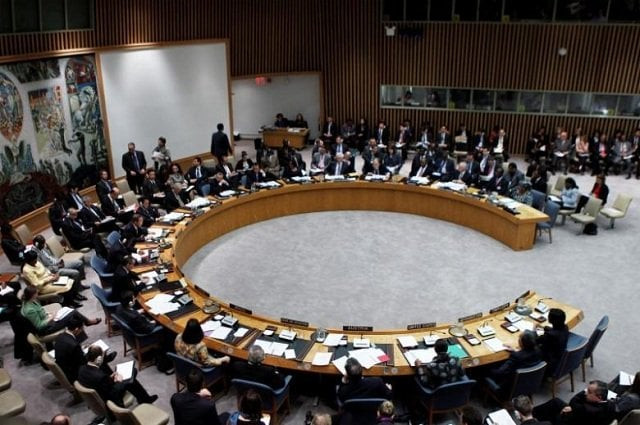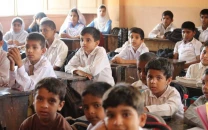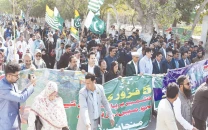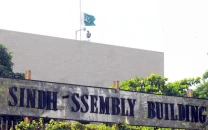Pakistan eyes UNSC non-permanent seat for 2025-26
FM Dar says Islamabad’s candidature has been endorsed by the Asia-Pacific group of countries

Pakistan on Wednesday began reaching out to countries seeking support for the non-permanent seat of the UN Security Council for 2025-26.
For this purpose, Foreign Minister Ishaq Dar hosted an Iftar dinner for the diplomatic corps today. "Pakistan's foreign policy is deeply rooted in the principles of peace, equality, and justice. Pakistan will continue to champion multilateralism, peace, development, and mutual prosperity," Dar said in his remarks.
He went on to seek the support of other countries to vote in favour of Pakistan's candidacy. "As you may be aware, Pakistan is a candidate for the non-permanent seat of the UN Security Council for the years 2025 and 2026. Our Security Council candidature has been endorsed by the Asia-Pacific group of countries," he said.
"We are extremely grateful to the countries that have already expressed their support, and we seek the invaluable support of all other countries as well," he added.
Read more: Pakistan welcomes UNSC resolution seeking truce in Gaza
He said that during its term at the council, Pakistan will promote the council’s mandate for the maintenance of international peace and security and help revitalise the council to address contemporary challenges, reach across political divides, and promote multilateralism.
Pakistan’s candidacy was endorsed by the Asia Pacific group last year. India is part of the Asia Pacific group, and both countries, despite troubled ties, have a tacit understanding not to create hurdles for each other regarding the non-permanent seats.
This will be Pakistan's eighth term at the UNSC. The last time Pakistan was a member of the UNSC was in 2012-13.
The only time Pakistan and India contested an election against each other at the group stage was in the 1970s. Islamabad had been able to defeat New Delhi at the time. After that, both sides opted not to contest against each other.
However, both sides did try to have their respective two-year terms overlapped. When India was on the UNSC from 2011 to 2012, Pakistan joined the council in 2012 and served until 2013.
Pakistan wanted to contest the election for 2022-2023 to overlap with India's 2021-22 term, but couldn’t do so since South Korea had already announced its candidacy for the same term. Pakistan, which launched its candidacy in 2014, has been vying for the 2025-26 term at the UNSC.
Pakistan is the lone candidate from the Asia-Pacific region.
Each year, the General Assembly elects five non-permanent members (out of 10 in total) for a two-year term. The 10 non-permanent seats are distributed on a regional basis -- five for African and Asian states; one for Eastern European states; two for the Latin American and Caribbean states; and two for Western European and other states.
Out of 193 members, the winning candidate needs 129 votes to get elected for the two-year term. Pakistan is likely to get the required number. The vote is cast through a secret ballot.
“In this holy month of peace and fasting, we must not forget the people of Gaza who are faced with starvation and war awaiting an end to the last six months of bloodshed and misery,” FM stressed.
"The time has come for an urgent and unconditional ceasefire, as called for by the United Nations Security Council.”
“Our collective dream of peace and prosperity cannot be realised without the settlement of outstanding regional disputes. It is, therefore, important to resolve longstanding disputes on the agenda of the UNSC including Palestine and Kashmir," he added.
He said the terror attacks in Moscow and Khyber-Pakhtunkhwa's Besham reminded him that terrorism was a collective and persistent threat to everyone across the globe.
"Pakistan will continue to promote regional and global partnerships in combating this menace," he said.



















COMMENTS
Comments are moderated and generally will be posted if they are on-topic and not abusive.
For more information, please see our Comments FAQ